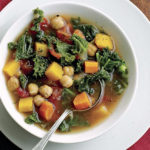Physical Wellbeing After Retirement
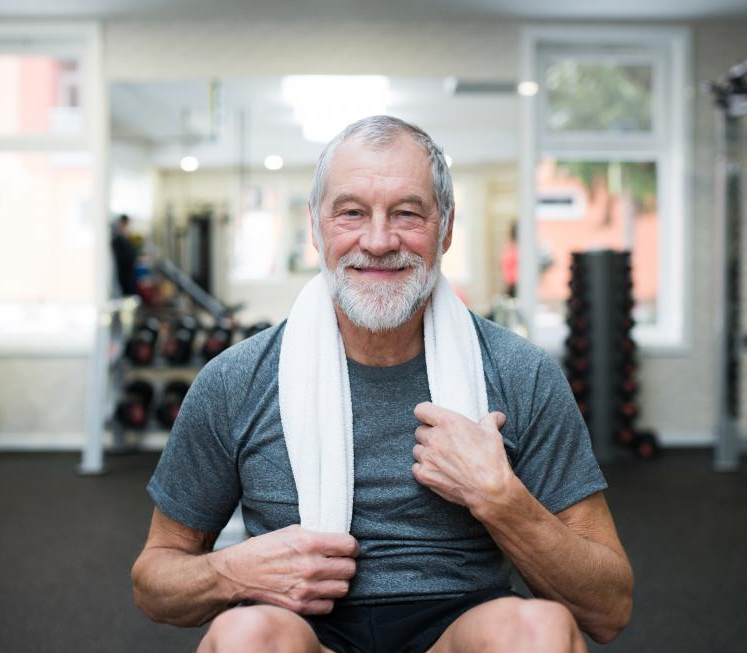
You already know your body is going to change as you get older. That’s why it’s important to live as healthily as you can, not only to help prolong your life but also to stay as independent as possible.
If you don’t try and stay healthy, everyday jobs may become more difficult and life simply may not be as much fun. With time on your hands when you retire, we’re sure you’d rather enjoy it in a good state of health and mind.
Diet and Nutrition
So what can you do to help yourself stay fit, happy and healthy? From diet and nutrition to dealing with physical disability, we hope we can help you find out.
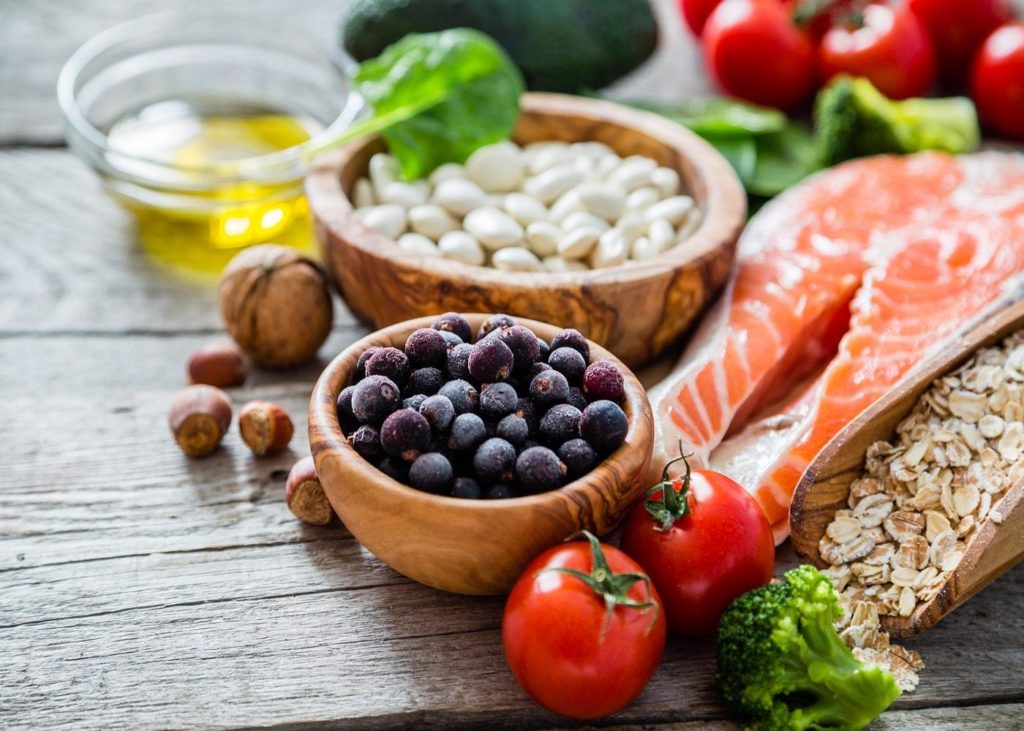
We all know it’s important to eat healthily and take regular exercise. As you get older, this can be even more beneficial – quite simply, a balanced diet can keep your body fit and healthy. There are other benefits too: your immune system will be better equipped to fight off illness and infection, and it can also be fun to experiment with different recipes and foods you may not have tried before.
Why should I think about my diet now?
Well, when you start thinking about retirement, it’s a time to focus on what you’d like to do with your free time – even if that means finding more work. To do that you need to be healthy and to be healthy you have to eat well. You should eat nutritious foods regularly.
What is nutrition?
It’s the food you take in, the process of getting food into your body and using it as raw materials for growth, fuel for energy, and vitamins and minerals to help keep your body working properly. We say that a ‘nutritious meal’ is one that’s balanced with a good combination of proteins, fats and sugars (the right kinds), vitamins, minerals, carbohydrates and fibre.
So what should my diet include?
A good place to find advice about your diet is at NHS Eatwell. It explains how your diet should consist of a variety of the following:
- Carbohydrates – bread, rice, potato, pasta
- Protein – meat, fish, eggs, beans
- Fats – cheese, milk, yoghurt
- Vitamins and minerals, fruit and vegetables
You don’t have to have all of these food groups with every meal, but it’s good to try and incorporate them into your weekly intake. If this sounds like hard work, don’t worry.
Many people start budgeting when they reach retirement and find planning weekly meals much easier as a result (you may even have fun experimenting with new recipes).
Should I lose weight?
It’s generally agreed that there are some physical benefits to getting rid of those extra pounds as you get older – the strain on your heart will be reduced, and your joints will benefit too. Losing weight can also improve your self-esteem and confidence, which is good for your overall well-being.
If I want to lose weight, how can I do that?
The truth is, it’s not about dieting – it’s about changing what you eat as part of your lifestyle. Crash diets rarely work and rapid weight loss often results in short term stress: more often than not, the weight comes back. The majority of experts concur that the best way to achieve sustained weight loss is by making changes that you can sustain in the long term.
So, particularly if you’re thinking about setting a budget and sticking to it as you get older, it’s a good idea to:
- Simply eat less – you’ll be surprised how full you start to feel on less food.
- Eat fewer cakes, biscuits and chocolate – they’re full of sugars and carbohydrate that taste great but don’t leave you feeling very full.
- Cut down on snacking between meals.
- Try to have 5 portions of fruit and veg each day.
- Protein is generally thought to make you feel full for longer, so trying to eat eggs for breakfast could be one small change you could make.
Will eating healthily cost more?
There can be the misconception that eating a healthy balanced diet costs more – but this isn’t so. There are many ways to ensure that you have nutritious and filling meals each day without blowing your retirement income. The British Heart Foundation has some great tips and BBC Good Food has a range of excellent recipes for cooking on a budget.
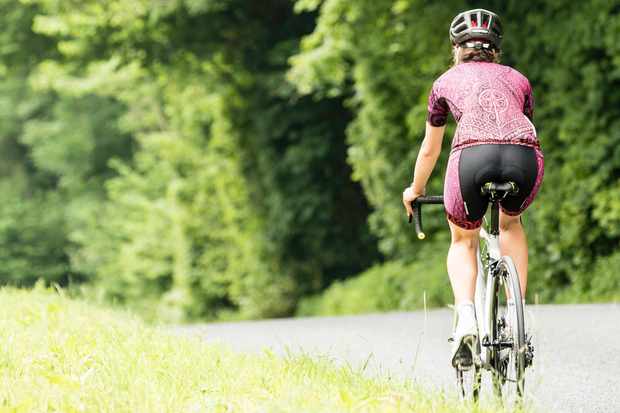
Active Pastimes
Retirement is a time when you deserve to relax a little, but remember: while you may expect to slow down a little, you don’t want to stop altogether. We all know that people who stay active tend to live longer, and you don’t need to break a sweat to do yourself a power of good. So try asking yourself – what things can I do in retirement to stay active?
We think of an active pastime as being something that keeps you busy – helping you to stay fit and healthy in body and mind as you get older. Everyone’s idea of ‘active’ is different, and we all enjoy doing different things. The key is just to do something, and preferably something that you really enjoy so that you’ll stick at it.
What kinds of things can I do to stay busy in retirement?
If you’ve always worked, the idea of retirement may be daunting. It’s entirely natural to be concerned about having periods of unstructured time to fill. The important thing is to stay active. Here are some ways to feel more positive about this exciting new stage of your life:
- Write a list of all the things you’ve wanted to do but didn’t have time to before. It could be tidying the shed or travelling the world; more gardening (or less); spending time with your family – or perhaps working as a volunteer.
- If you don’t have lots of hobbies now, think about getting involved in groups near to where you live like The University of the Third Age or joining a local health walk group.
- Find ways to make your current pastimes more manageable as you get older. So if you love gardening but don’t think you’ll manage your existing land, swap high maintenance perennials for ones that don’t need year round pruning.
- Try something new. It needn’t be about just keeping physically
active – it could also be about keeping mentally active. Here are some
popular active pastimes:
- Collecting and selling antiques
- Photography
- Model cars or aeroplanes
- Volunteering
- Genealogy
- Scrap booking
What about using your retirement to travel?
There are a wide variety of specialist travel companies that offer all kinds of trips from adventure trekking in the Scottish Highlands to desert surfing in the UAE. Holidays are a great way of trying something new and seeing more of the world. For ideas, we have a whole section on travelling for you to take a look at.
What if my future plans seem expensive?
Not every pastime costs buckets of money, but you’ll have to be realistic financially. Look at your finances now to see how your pension is performing. Of course, put in as much as you can while you’re still earning. Find out more about maximising your savings.
Where can I find out more?
The best way to find out what’s available in the local community is to take a look at your community newsletter, shopping centre message boards, doctor and dentist message boards. Some information may also be held by your local authority, but this is likely to be focused on groups and services that are publically run or funded rather than those that are run in the community.
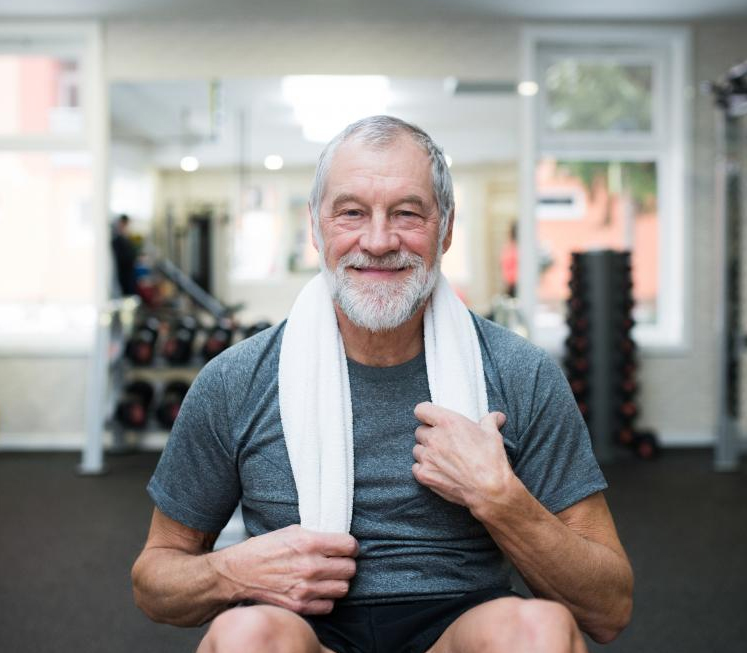
Exercise
There are so many benefits to getting some gentle exercise, and none of us are too old to remember how much fun it is running around. There’s still nothing quite like getting out and getting your heart rate up to make you feel alive – and some of the best ideas don’t even require Lycra.
Why is it important to exercise as I get older?
Studies have shown that older adults who do physical activity are healthier and less likely to develop long-term conditions like type 2 diabetes, or suffer from osteoporosis or back pain.
As long as you go about it sensibly, exercising has few risks, and certainly fewer than doing very little physical activity as the alternative. The benefits of exercise include:
- Making you physically stronger and therefore less likely to become ill or incapacitated.
- Making it more achievable to manage your weight.
- Providing you with a greater sense of confidence and wellbeing.
- Often helping you sleep better.
What sort of physical activity could I try?
Any activities like walking, swimming or cycling are good ways to get your heart and lungs going. This kind of aerobic fitness improves circulation and means you’ll be more likely to carry on with daily activities as you get older.
You could also try strength training. By lifting anything from shopping bags to light weights at a gym, you could maintain muscle and even improve your balance. This may help you avoid falls in later life.
How much exercise should I do?
We’re not saying you need to be running marathons – little and often is always better than one big burst of activity. If you can, try to aim for thirty minutes, five times a week. It needn’t be all done at once, and if you haven’t exercised in a while, it’s probably best that you work up gently to this level rather that hit it all in one go!
What if I’m not in the best of health?
Talk to your doctor. Your GP can discuss your exercise options with you including simple exercises you can do at home such as the ones recommended by the NHS. Remember, if you ever feel dizzy, short of breath or unwell whilst exercising, stop and seek medical attention immediately.
Where can I go to exercise?
Your local area is likely to have a range of facilities that are run privately or by the local authority. These will include gyms, swimming pools, exercise classes etc. There are a wealth of activities available that enable you to get good physical exercise at your own pace. You can even go out in the local countryside and do a spot of walking with the ramblers association.

